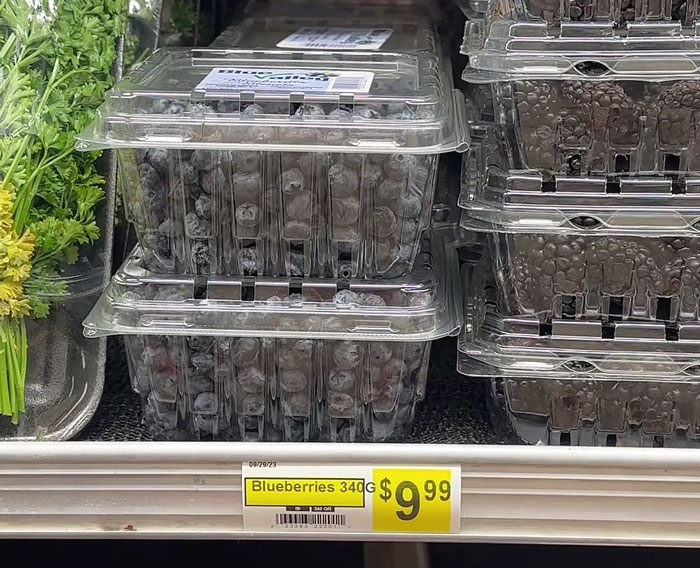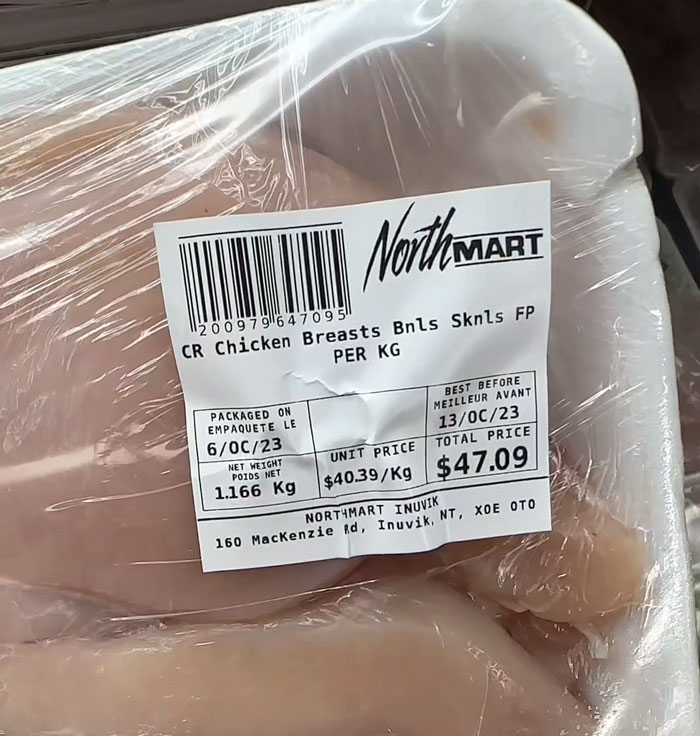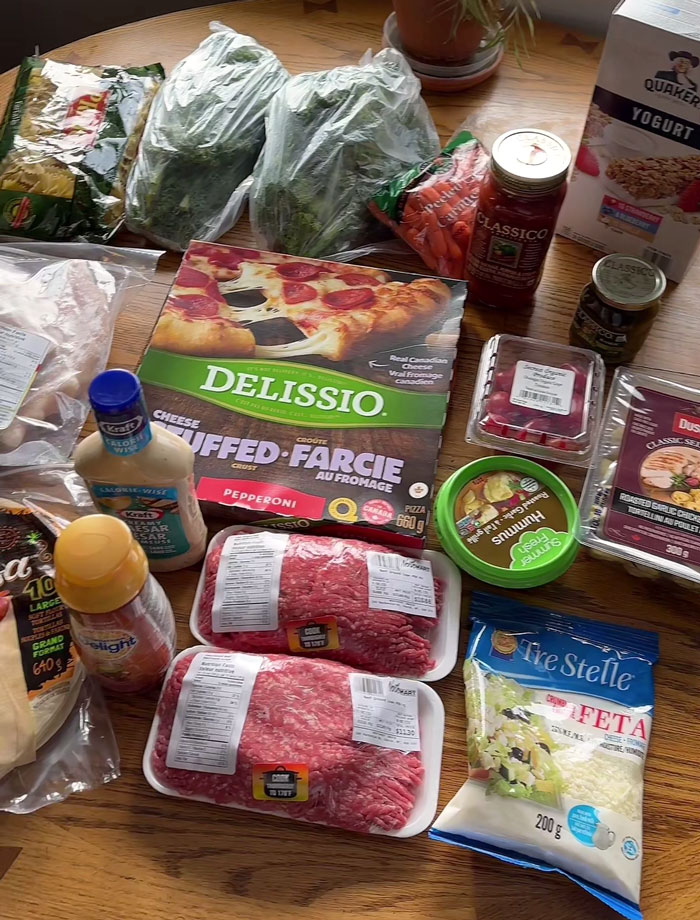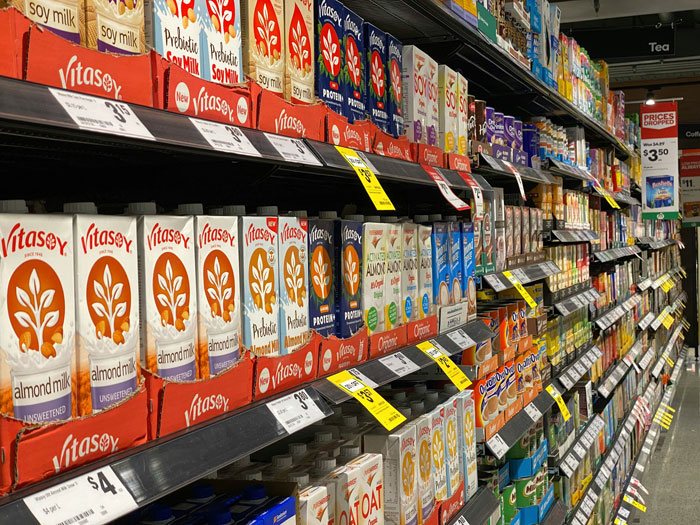s kids, when we live a sheltered life with our parents, we barely even realize how expensive the world is, but when we start earning, it suddenly hits us, doesn’t it? Then we start questioning every object before buying, and whether we really need it.
Well, here’s something that will blow your mind: TikToker Willow Allen shared what a bag of groceries costs in Inuvik, Canada, and folks were left speechless. Her video garnered over 6.5 million views as she explains how staggeringly expensive living in the Arctic really is!
We can be so careless about everyday things until the moment we start earning and realize how expensive surviving is
This TikTok user shared what a normal bag of groceries actually costs in the northern community of Inuvik, Canada
Research reveals that while oil and gas prices have dropped in Canada much like they have around the world, food and housing prices in Canada have been increasing. It has been observed that the annual consumer price index of food and non-alcoholic beverages in Canada has been steadily increasing over the last decade, with an 8.89% rise in 2022.
As TikToker Willow Allen invites us to go grocery shopping with her in the video, it’s evident how difficult living in such secluded communities might be for people.
People were shocked to find that something as inexpensive as Nutella costs $48 in the Arctic, and they couldn’t hide their surprise
To get a deeper understanding of the inflation and pricing in the Arctic economy, Bored Panda got in touch with Madhura, who was a student of economics and also has experience working in the financial sector. She spoke about the logistical challenges that drive up the cost of groceries in such remote communities as Inuvik, Canada.
“Transportation costs are higher in urban centers due to longer distances, harsher weather, and limited infrastructure. Lower population densities mean less demand, which prevents economies of scale in distribution and retail.”
“Import duties and tariffs are the other impacting factors as essentially, many grocery items in northern Canada, especially fresh produce and non-local staples, are imported from other countries (e.g., the U.S. or Mexico),” Madhura explained.
We also discussed with our expert the typical price differences for staple goods between northern communities and southern urban centers, and the reason they are so stark. She claimed that supply chain disruptions, particularly during events like COVID, or the increased operating costs for remote retailers can bring about this difference.
Additionally, she also noted other factors like limited options for consumers to shop around or access alternative food sources and/or the need for stores to maintain higher profit margins to remain viable in challenging economic environments.
Meanwhile, she even narrated the reasons for inflation in the northern communities such as high demand, low supply; limited presence of retail companies, further increasing the average gap of supply; and global trends in energy and shipping costs.
A lot of people in the comments expressed their concern about how people survive in such expensive settings and how it impacts their livelihood. To be absolutely honest, it is indeed an eyebrow-raising concern, isn’t it?
Madhura also elaborated that the high cost of groceries places immense strain on financial stability, leaving little for housing, education, and other essentials. She mentioned that it also staggeringly affects countries with high taxes and lower disposable income.
Lastly, Madhura also expressed that limited competition among retailers in remote areas plays a major role in driving up prices as it results in limited bargaining power of consumers (along with limited options for consumption).
She concluded the interview with some brilliant insights on how this problem can be addressed:
- Exploring price caps on essential items
- Subsidizing freighting costs
- Mandating pricing information on groceries
- Encouraging the entry of additional retailers to increase competition
- Encouraging local stalls and weekly markets
That definitely sounds like helpful advice, wouldn’t you say? Well, consulting an expert always helps ease the reason behind an issue, doesn’t it? Now that you know the reason behind the extravagant cost of groceries in the Arctic, what are your thoughts about daily life over there? Leave your thoughts in the comments below!











